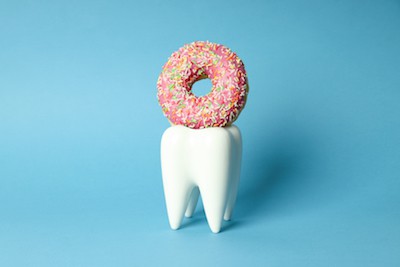
10 Jan How Does Sugar Effect Your Teeth?
The Effects Of Sugar On Your Teeth
You’re likely not surprised to learn that sugar is harmful to your oral health but how exactly does it affect your teeth? And are there some sugary foods and drinks that are worse than others? And because it’s hard to completely avoid sugar, how can we best protect our teeth from its effects? All of these questions will be discussed throughout this article but before we get into all of it, let’s get back to the main question.
How does sugar affect your teeth? Sugar feeds the bacteria in your mouth, allowing them to produce acid which can cause tooth decay. The acids that form as a result of sugar break down enamel and create tiny holes in your teeth called cavities. It doesn’t matter if you’re eating candy or drinking soda, both contain high levels of sugar that can damage your teeth. Additionally, sticky foods like dried fruit can be tougher to remove when brushing and flossing—leaving the sugar in your mouth for a longer period of time and increasing the chances of tooth decay. Now let’s dive in a bit deeper as to how sugar affects your oral health and what to do about it.
The Simple Science Of Sugar And It’s Effect On Your Teeth
Consuming too much sugar can have an incredibly negative effect on your teeth. It contributes to tooth decay and cavities, which are usually caused by plaque buildup that is fed by the sugars in food. When saliva and bacteria mix with the sugar, they form a sticky film on your teeth called plaque. Plaque contains acid that can dissolve the enamel of your teeth and cause cavities. The more often you expose your teeth to sugars, the more damage they will endure. Artificial sweeteners aren’t always a better option either since they can still contain acids that cause tooth decay.
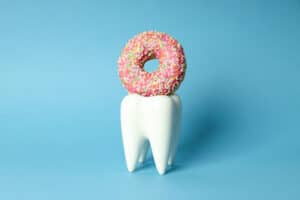
The Dangers Of Too Much Sugar For Your Oral And Physical Health
Eating excess amounts of sugar can have significant consequences on your oral and physical health. Sugars found in processed foods, such as cakes, candy, and sodas, especially pose a risk to your body due to their high sucrose content. Eating too many of these can lead to cavities, plaque buildup, and gum disease; all of which can ultimately lead to tooth loss. Furthermore, it’s important to be aware that the overconsumption of sugar can also cause other physical issues such as the increased risk for diabetes and heart disease since sugary beverages are often loaded with empty calories that lack nutrients. To maintain optimal health and a bright smile, it is important to practice moderation in our daily diet by limiting or avoiding sugary foods altogether!
The Top Sugary Foods You Should Avoid
While it’s difficult to avoid sugar completely, it is important to be conscious of what types of foods and drinks you should limit or avoid. Some of the top sugary foods that are bad for your teeth include candy, cookies, cakes, sweetened drinks such as soda and energy drinks, sports drinks, and flavored water. All of these items contain high levels of sucrose which can cause damage to your teeth. Additionally, sticky foods such as dried fruit can be difficult to remove when brushing and flossing—allowing sugar to stay in your mouth longer and increasing the chances of tooth decay. Also, all these foods contain considerable amounts of empty calories that can quickly add up; avoiding them is a crucial step toward achieving optimal health. In many cases, savvy consumers can opt for lower-sugar versions of some or all of the above foods, but even those should be eaten in moderation.
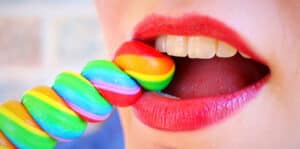
Tips For Reducing The Amount Of Sugar In Your Diet
Reducing the amount of sugar in your diet is essential for maintaining a healthy lifestyle. Luckily, it doesn’t have to be a difficult process. Substituting artificial sweeteners for added sugar in the drinks and snacks you enjoy is a simple place to start. Cooking meals at home with whole foods is also an effective way to reduce your overall sugar intake; additionally, home-cooked meals are often cheaper than takeout! Finally, when shopping for packaged goods, opt for low-sugar or no-sugar options; when available, these products are often just as flavorful and can help reduce your daily sugar intake.
Rather than trying to cut out all sugar at once, try to focus on small changes that will help you reduce your sugar consumption over time. Making gradual, sustainable changes to your diet is key to achieving successful long-term results!
How To Brush Your Teeth After Consuming Sugar
Brushing your teeth is essential to prevent cavities and maintain good oral health, particularly after eating or drinking anything containing sugar. To brush properly, take a soft-bristled toothbrush and a pea-sized amount of toothpaste. Start by brushing the outer surfaces of each tooth in gentle circular motions for about two minutes. Then, using the same technique, brush the inside surfaces of all teeth thoroughly before moving on to the chewing surfaces. Finally, ensure you pay special attention when brushing up and down along the gum line to remove residual food particles or sugary substances. After you’ve finished brushing, rinse your mouth with water and use floss to remove any stubborn food particles between your teeth. Properly brushing your teeth twice a day is an easy habit that will give you healthy smiles for years to come!

The Bottom Line
Though we might not realize it, sugar does affect our teeth. Sugary foods and drinks can cause cavities, which can lead to more serious dental problems down the road. That’s why it’s important to be mindful of how much sugar we’re consuming and make an effort to cut down on sugary foods and drinks. Additionally, brushing your teeth twice a day and flossing regularly can help remove residual sugars from your mouth and protect your teeth from decay. With these simple steps, you can maintain the optimal health of your smile for years to come!
By making smart decisions and good habits, you can ensure your teeth stay healthy and strong for years to come. To keep your smile looking its best, be sure to limit sugary foods and drinks and brush your teeth twice a day using a soft-bristled toothbrush. If you’re concerned about your oral health or think you might have a cavity, contact your local dentist to make an appointment today. By taking care of our teeth, we can avoid painful and costly dental problems in the future.
Related Questions
What are the symptoms of tooth decay?
Common signs and symptoms of tooth decay include pain or sensitivity when eating or drinking something hot, cold, sweet, or sour; visible holes in the teeth; discoloration on the surface of a tooth; pain when biting down on a tooth; bad breath; and swollen gums. If you notice any of these symptoms, it’s important to make an appointment with your dentist as soon as possible.
Is sugar-free gum okay for your teeth?
Although sugar-free gum can help to increase saliva production, which helps to rinse away food particles and plaque from the teeth, it’s important to remember that the artificial sweeteners in the gum can still damage your teeth. But in moderation, sugar-free gum is better for your teeth than sugary gum, since it won’t contribute to tooth decay.
What are the best snacks to have for sensitive teeth?
If you have sensitive teeth, look for snacks that are low in sugar and high in fiber. Some good options include fresh fruits and vegetables, nuts, seeds, plain popcorn, oatmeal, and yogurt. You can also try cold or room-temperature foods like applesauce or smoothies to reduce pain. Avoiding highly acidic foods such as orange juice, lemons, and tomatoes can also help to reduce sensitivity.
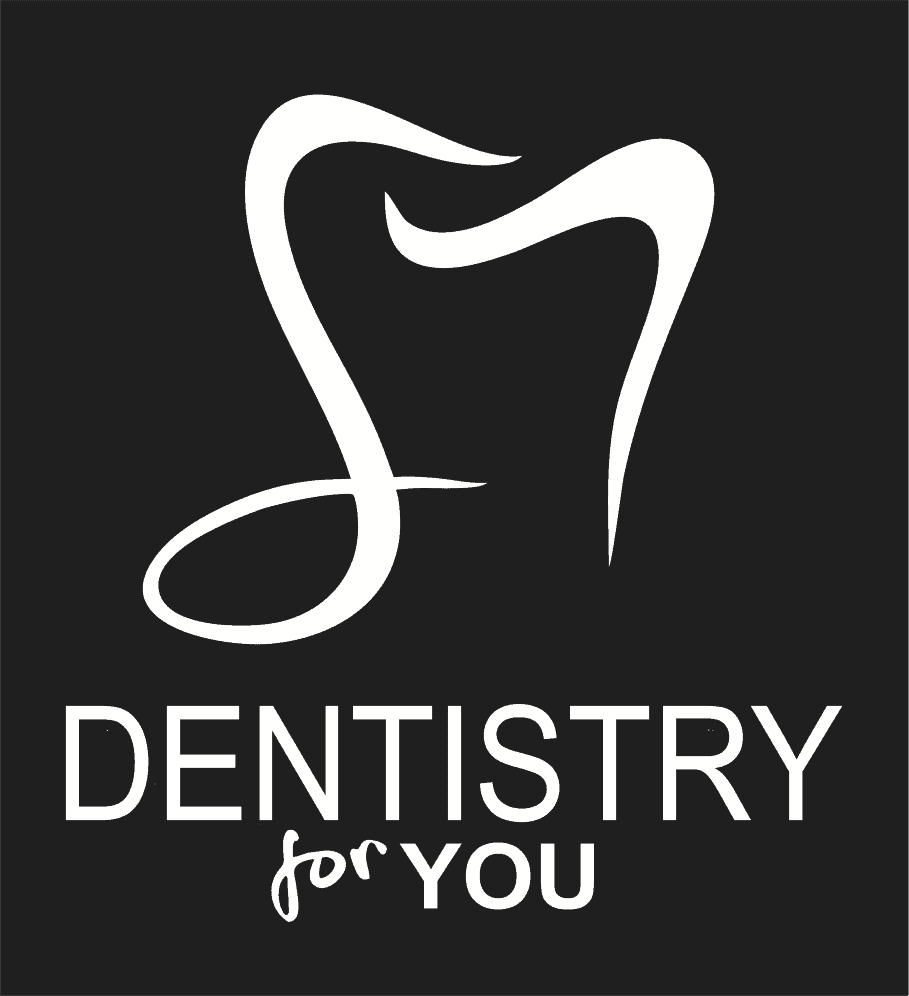

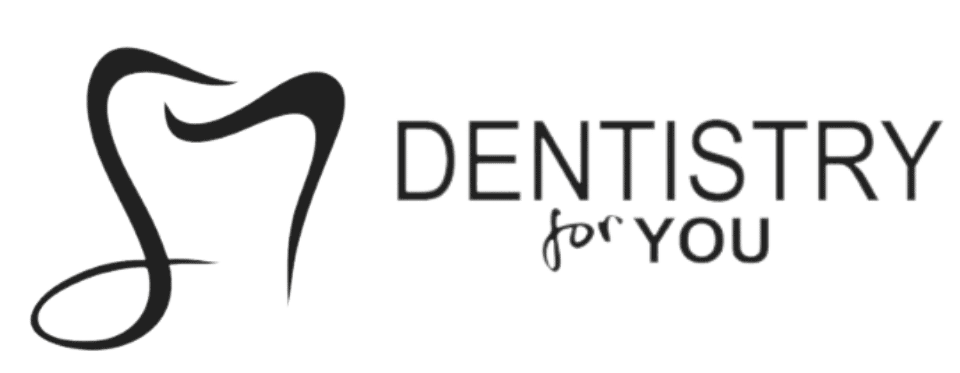


Sorry, the comment form is closed at this time.